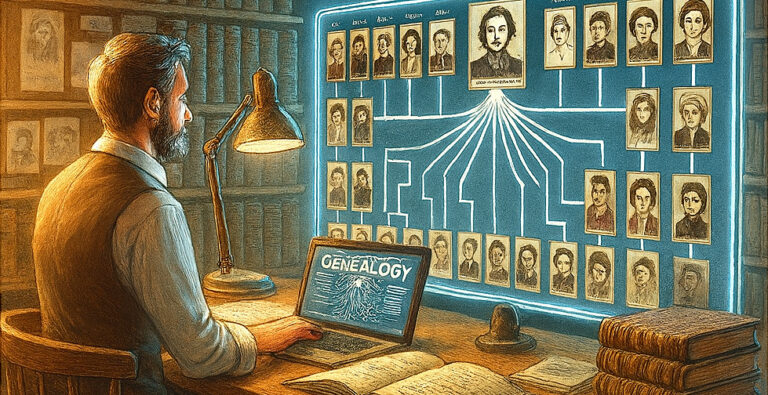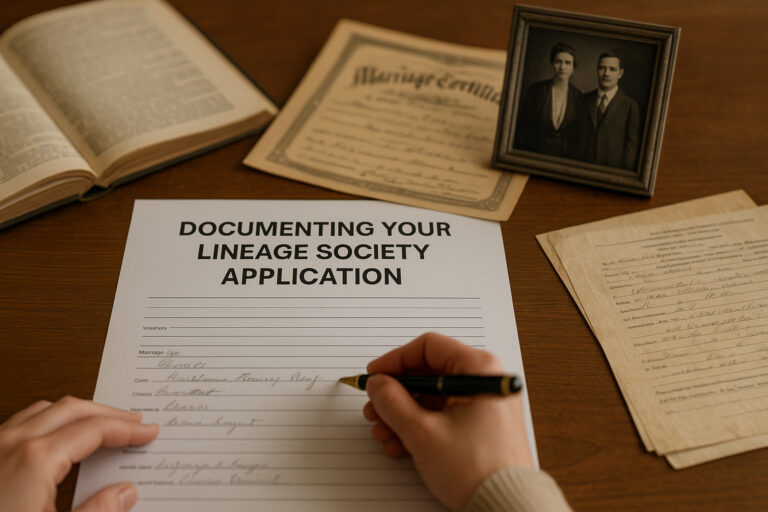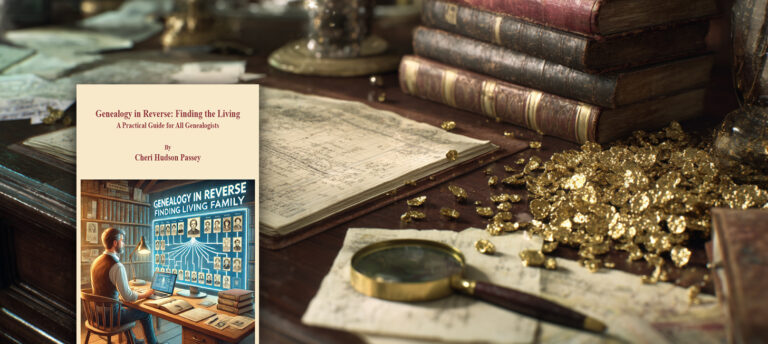What Your Relatives Can Tell You about the Great Depression & WWII
As Emily Anne Croom writes in her book, Unpuzzling Your Past. The Best-Selling Basic Guide to Genealogy, “Collecting family history also means trying to fit the family into the history of the community, county, state, and nation. You can find the political, economic, and social history of these areas in books and contemporary newspapers, but only family members can share their personal reactions to the public events. . . .”
For example, if your elders are 85 or over, they will have lived through the worst of the Great Depression of the 1930s and the Second World War. They can tell you about the challenges of living through economic crisis—one considerably more severe than the “Great Recession” of 2008. How did their parents and other loved ones cope with financial disaster? How long did family members go without work? What do they recall adults saying about the politicians of the time, like FDR, Herbert Hoover, or Huey Long? Did one of their elders work for the Civilian Conservation Corps or one of the other temporary federal agencies created to put people back to work?
By the same token, if your relative(s) are pushing 80, did one of their parents serve in World War II? What was life like on the home front? How did the war change fashion? Did they know anyone who served as an air raid warden. If your family was German-American, did they experience prejudice at the hands of others or the government. Was one of your friends or neighbors sent to a Japanese internment camp? Did your family lose loved ones in one of the war’s theaters?
If you do have septuagenarian or octogenarian relatives, don’t let their stories of the 1930s and 1940s slip away before you have taken the time to add them to your family history. Besides, it’s a lot easier than you might think. All you need is a tape recorder–or a pen and legal pad–along with a list of questions concerning the trenchant events of that era, already prepared for you by Ms. Croom, and you are on your way. The following “Questionnaire for the Great Depression and the 1930s,” comes from pp. 70-72 of Unpuzzling Your Past, and it represents just one of the many checklists, tools, and techniques that proliferate throughout that award-winning book for genealogy researchers. (The same chapter contains similar lists of questions for the 1920s, the 1940s and World War II, the 1950s and 1960s, and 1970s and after.) For more information or to buy a copy of Unpuzzling Your Past, please CLICK HERE.
Questionnaire for the Great Depression and the 1930s
- To what extent did the Depression change your habits, way of life, school, plans? Did you “feel” the Depression? Did you observe a difference in the way the Depression affected people living in cities and people living in the country or small towns?
- Did the family move during this decade? Why? How frequently? Where? What household conveniences did you have or lack: electricity, telephone, indoor plumbing, others?
- Which family members had jobs? Doing what? Were they paid in cash, goods, or scrip? How much was rent? Was it difficult for the family to find housing or jobs?
- At the time, what did you or the family think of Presidents Hoover and Franklin Roosevelt? Have you changed your opinion since then? Whom did the family support for president in 1928 (Hoover or Smith), 1932 (Hoover or Roosevelt), 1936 (Roosevelt or Landon)? Why? How effective were Hoover and Roosevelt as presidents?
- Did any family member work for one of the New Deal agencies, such as the CCC, the WPA (Works Progress Administration), or the PWA (Public Works Administration)? If so, who? Which agency? Doing what? How long? Where?
- Did the family raise, hunt, can, or preserve any of its own food? If so, what? What food items did you find to be scarce or plentiful? Did you live on a farm, in a small town, or in a city? Did you observe or experience any difference in the availability of food in rural and urban areas?
- Did you experience the “Dust Bowl” that damaged so much of the middle of our country?
- What sacrifices did you or your parents make during the Depression? Why?
- Did the family have a car? What make or model? How much did it cost? How much did gasoline cost? Did you or the family limit driving? Did you or the family have to give up the car during the Depression? If you did not have a car, on what kind of transportation did you rely?
- Did you or the family have money in a bank before or during the Depression? If so, did you lose any of it because of the Depression? Did you or the family lose money in the stock market crash?
- Did the family make any of its clothes during the Depression? If so, what?
- Did you hear Orson Welles’s “War of the Worlds” on radio on 30 October 1938? What did you think of it at the time? Did you fall for it? Why or why not? How did other family members react?
- What was it like to go to silent movies? What was your reaction to your first talkie or your first color movie? Explain.
- How have your experiences during the Depression affected your attitudes of the present?
- What further recollections and stories can you share about your experiences during the 1930s?




